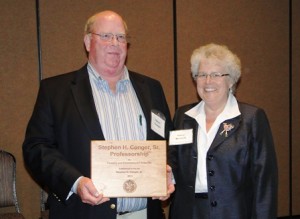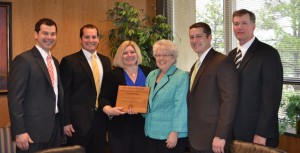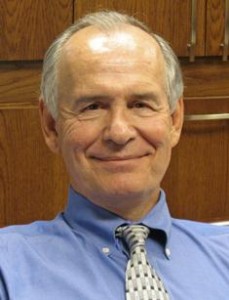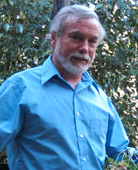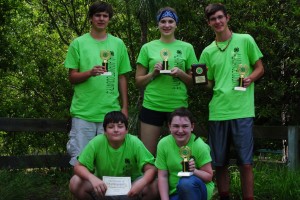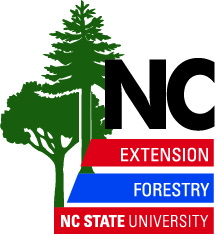For more than a decade, scientists have suspected that hairpin-shaped chains of micro-RNA regulate wood formation inside plant cells. Now, scientists at NC State University have found the first example and mapped out key relationships that control the process.
The research, published online in Proceedings of the National Academy of Sciences the week of June 10, describes how one strand of micro-RNA reduced by more than 20 percent the formation of lignin, which gives wood its strength. Understanding how to reduce lignin at the cellular level could lead to advances in paper and biofuels production, where harsh chemicals and costly treatments are used to remove lignin from wood.
“This is the first time that we have proof that a micro-RNA controls lignin biosynthesis,” said Dr. Vincent Chiang, who co-directs NC State’s Forest Biotechnology Group with Dr. Ron Sederoff, a member of the National Academy of Sciences.
Through five years of “very detailed analysis,” the team confirmed that micro-RNA acts as a master regulator in reducing formation of lignin in transgenic black cottonwood, Chiang said.
Researchers used mathematical analysis to map out a three-layered network of relationships among key transcription factors and the micro-RNA that controls expression of laccase genes as well as other peroxidase genes involved in wood formation.
The network illustrates the hierarchy of gene control and narrows the transcription factors of interest from approximately 2,000 to 20. “That’s still a career’s worth of research,” Chiang said.
Lead authors are Dr. Shanfa Lu, former NC State postdoctoral scientist and now professor with the Chinese Academy of Medical Sciences and Peking Union Medical College, and Dr. Quanzi Li, senior research associate with NC State’s Forest Biotechnology Group. Dr. Hairong Wei, professor of systems and computational biology at Michigan Technological University, created a unique algorithm for mapping the genetic regulatory network.
The research was funded with a National Science Foundation Plant Genome Research Program Grant (DBI-0922391).
For More Information, Contact:
D’Lyn Ford | NC State News Services | 919.513.4798
Dr. Vincent Chiang NC State Forest Biotechnology Group | 919.513.0098
-ford-
Note to editors: An abstract of the paper follows.
“Ptr-miR397a is a negative regulator of laccase genes affecting lignin content in Populus trichocarpa”
Published: Online the week of June 10 in Proceedings of the National Academy of Sciences
Authors: Shanfa Lu, Quanzi Li, Hairong Wei, Mao-Ju Chang, Sermsawat Tunlaya-Anukit, Hoon Kim, Jie Liu, Jingyuan Song, Ying-Hsuan Sun, Lichai Yuan, Ting-Feng Yeh, Ilona Peszlen, John Ralph, Ronald R. Sederoff and Vincent L. Chiang
Co-lead author Li, Tunlaya-Anukit, Liu, Sederoff and Chiang are members of the Forest Biotechnology Group at North Carolina State University. Co-lead author Lu, a former postdoctoral researcher at NC State, Song and Yuan are with the Institute of Medicinal Plant Development, Chinese Academy of Medical Sciences and Peking Union Medical College. Wei is with Michigan Technological University. Chang and Yeh are with National Taiwan University. Sun is with National Chung Hsing University in Taiwan. Peszlen is with the Department of Forest Biomaterials, NC State. Kim and Ralph are with the University of Wisconsin, Madison.
Abstract: Laccases, as early as 1959, were proposed to catalyze the oxidative polymerization of monolignols. Genetic evidence in support of this hypothesis has been elusive due to functional redundancy of laccase genes. An Arabidopsis double mutant demonstrated the involvement of laccases in lignin biosynthesis. We previously identified a subset of laccase genes to be targets of a microRNA (miRNA) ptr-miR397a in Populus trichocarpa. To elucidate the roles of ptr-miR397a and its targets, we characterized the laccase gene family and identified 49 laccase gene models, of which 29 were predicted to be targets of ptr-miR397a. We overexpressed Ptr MIR397a in transgenic P. trichocarpa. In each of all nine transgenic lines tested, 17 PtrLACs were down-regulated as analyzed by RNA-seq. Transgenic lines with severe reduction in the expression of these laccase genes resulted in an ~40% decrease in the total laccase activity. Overexpression of Ptr-MIR397a in these transgenic lines also reduced lignin content, whereas levels of all monolignol biosynthetic gene transcripts remained unchanged. A hierarchical genetic regulatory network (GRN) built by a bottom-up graphic Gaussian model algorithm provides additional support for a role of ptr-mi397a as a negative regulator of laccases for lignin biosynthesis. Full transcriptome-based differential gene expression in the overexpressed transgenics and protein domain analyses implicate previously unidentified transcription factors and their targets in an extended hierarchical GRN including ptr-miR397a and laccases that coregulate lignin biosynthesis in wood formation. Ptr-miR397a, laccases, and other regulatory components of this network may provide additional strategies for genetic manipulation of lignin content.


